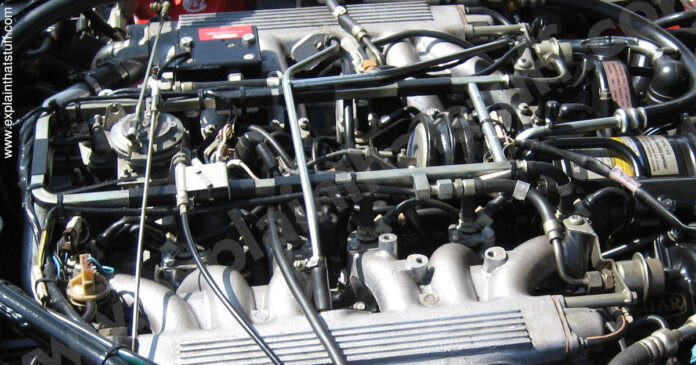Gas engines were considered to be at the end of their lives around 100,000 miles ago, but today engines are regularly going around the odometer again and again. Unlike gasoline engines that reach 200,000 miles or more, diesel engines can often get 500,000 miles or more. Diesel engines are more durable and last longer.
Design of diesel engines
The old saw that bigger isn’t always better has held for a long time. Diesel engines, however, last longer than petrol engines because of this. A diesel engine’s compression ratio and cylinder pressure are higher than gasoline. These factors are taken into account when creating diesel engines. Due to their larger crankshaft and camshaft, they require more oversized bearings and stronger bolts. A larger crankshaft and camshaft also have more clearance, which means better oil flow. Engine lubrication contributes to a longer engine lifespan due to the reduced wear on the engine.
The diesel engine also has other defining design differences that contribute to its long life, including:
- Diesel engines are gear-driven, eliminating the need for timing belt replacement. Additionally, it saves you money on expensive maintenance since the timing belt does not need to be replaced.
- A piston cooling jet sprays engine oil onto the piston bottoms of Diesel Engines. This engine oil spray reduces friction and keeps the pistons cool, preventing premature wear by adequately lubricating pistons.
- The compression motors of diesel engines consume fuel slower than spark plugs. Diesel engines run more efficiently due to this slower burn, reducing stress and producing more torque.
Diesel fuel
The fuel that diesel engines burn also lasts longer than gas engines. Diesel fuel is a distillate fuel derived primarily from crude oil. As a result, diesel engines have a lower rate of cylinder wear than gasoline engines. Diesel fuel has lubricating properties, which increase the engine’s durability. On the other hand, Gasoline is mainly made up of aromatic hydrocarbons that behave like solvents and are harsh and corrosive. This lack of lubrication causes excessive wear on your engine’s components. Additionally, the exhaust gas temperature (EGT) of diesel engines is lower, which also helps to extend their life.
The laws of thermodynamics say that even though diesel fuel has more British thermal units (BTUs) than gasoline, the higher compression ratios of diesel engines cool exhaust gases more quickly because their expansion rate is greater. Additionally, diesel fuel ignites at 410°F compared to 495°F for gasoline, resulting in a more relaxed initial flame front. Diesel engines also have much leaner energy to air ratio, between 25:1 and 70:1, whereas gasoline engines are between 12:1 and 16. As the air to fuel ratio is reduced, the EGTs are cooled. Moreover, gasoline burns at a much faster rate than diesel fuel. During combustion in diesel engines, the flame moves at a slower laminar speed, reducing shock to the rotating assembly, further enhancing their durability.
Lower RPMS
Operational efficiency is the third factor that prolongs the life of a diesel engine. Engines powered by diesel fuel have lower revolutions per minute (RPMs) and produce greater torque than gas engines. Enable your machine to make the same power at more proletarian revolutions. There will be minor wear and tear on your pistons, rings, cylinder walls, bearings, valves, and guides, resulting in longer engine life. While diesel engines are not in use for a short period, they are typically left running. A diesel engine’s constant on/off cycle saves wear compared to a gasoline engine because most wear occurs at startup. Moreover, it keeps the operating temperature stable and reduces heat cycles.
Expert Spotlight
Stephen Peters of PSP Diesel in South Houston, Texas, known for making Ford Power stroke 6.0L engines, explains why diesel engines last longer:
Owners of diesel engines typically use them for much more than the engine’s intended purpose. A gasoline engine typically runs for shorter periods throughout the day and provides maximum torque instead of the regular start/stop pattern of a diesel engine. A gasoline engine does not need to start and stop quickly. Engine starts are one of the most abrasive activities a motor goes through. Most of these trucks sit idle while driving, which isn’t ideal for the motor’s longevity. In addition to being started at dawn and shut down at night, they run long hours and are incredibly hard-working, but that is their purpose.”
Peters states, “Diesel engines are just built to last longer.” For example, they have larger blocks, thicker walls, and larger pistons. Due to the added bulk even, as well as the exacting tolerances in the rings to prevent blow-by, the design originated with lubrication in mind, reducing friction and damaging the rubbing parts.”
Read More: Ring Wired Doorbell Installation: A Detailed Guide About Ring Wired Doorbell Installation
Maintenance of diesel engines is essential to the engine’s life
As with all valuables, you’ll want to maintain your diesel engine regularly to make sure it lasts as long as possible. Diesel owners can prevent engine damage with simple but effective preventive measures, adding oil and fuel additives to their fuel and oil. Lubricity plays a significant role in diesel engines, and additives provide more lubricity in ultra-low sulfur fuel by balancing the fuel mixture. Diesel engines require motor oils specifically designed to handle the higher demands of their engines. These oils have minor viscosity breakdown, better heat transfer, longer life, and reduced maintenance. An engine coolant of high quality reduces friction from heat expansion by keeping the overall operating temperatures lower.
To handle the heavy-duty rigors of diesel engines, Hot Shot’s Secret additives and coolants were explicitly designed. You can ensure the long-term performance of your diesel engine by simply adding the correct transmission fluid and engine fluid.
Do diesel engines last longer than petrol?
The debate between diesel and petrol engines has been ongoing for years, with many arguing that diesel engines last longer than their petrol counterparts. While it is true that diesel engines have a reputation for longevity, it is important to understand the factors that contribute to this.
One of the main reasons why diesel engines are considered to last longer is due to their design. Diesel engines have a simpler design with fewer moving parts, which means fewer opportunities for things to go wrong. Additionally, diesel fuel is more efficient and has a higher energy density than petrol, which means that diesel engines can produce more power from the same amount of fuel. This also means that diesel engines can run at lower RPMs, which puts less stress on the engine and contributes to its longevity.
However, some factors can contribute to petrol engines lasting longer than diesel engines. Petrol engines tend to be smaller and lighter, which means they have less mass to move around and can be more nimble. Additionally, petrol engines often have more advanced technology, such as turbochargers and direct injection, which can increase efficiency and power output.
FAQs
- Are diesel engines really more durable?
It is also because diesel engines burn less fuel than gas engines that last longer. Engine components wear out excessively due to this lack of lubrication.
- Would it be wise to buy a diesel that has 200k miles on it?
Any used diesel pickup with a Cummins or Duramax engine with more than 350,000 miles on the clock is considered high mileage, according to ProSource Diesel.
- How long do diesel engines last?
Cummins engines are used in Dodge diesel trucks and Ram diesel trucks.
Apart from this, if you are interested to know more about HOW MUCH DOES IT COST TO PAINT A TRUCK? then visit our BUSINESS category.











